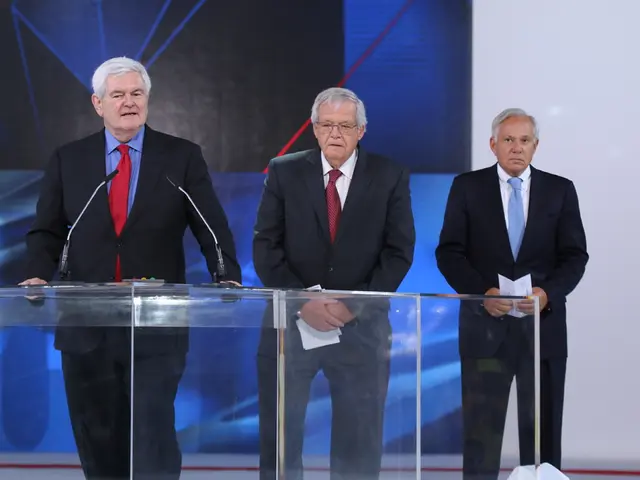Momentum builds for US-Gulf energy partnership as green projects take center stage
The United States and Gulf nations, particularly Qatar, are forging collaborative partnerships in the realm of green energy, focusing on green methanol, sustainable aviation fuel (SAF), carbon capture technologies, and clean hydrogen production. These ventures are designed to deliver economically viable and scalable climate solutions that advance global sustainability without compromising profitability.
Key aspects of these partnerships include strategic collaboration targeting green methanol, SAF, and carbon capture and sequestration (CCS). The U.S. southern states, with their expertise in biomass development and CCS, are exporting turnkey solutions to Gulf countries. In return, clean fuel production facilities in the Gulf supply US carriers, enabling compliance with environmental mandates and reducing reliance on subsidies.
The focus on clean hydrogen is another significant component. GCC nations, led by Saudi Arabia, UAE, and Oman, are rapidly expanding hydrogen production capacity. Investments emphasize green hydrogen (from renewables) and blue hydrogen (from natural gas with CCS), with companies like ADNOC (UAE) and Saudi Aramco playing key roles.
Qatar is demonstrating sustainability leadership through green finance, issuing $2.5 billion in sovereign green bonds in 2024, setting a Middle Eastern record and attracting strong global investor interest. The proceeds fund climate-resilient projects aligned with Qatar National Vision 2030, enhancing accountability via a sovereign green assets register.
The Gulf nations are also diversifying from oil dependency by scaling renewables, hydrogen, nuclear, and battery storage, targeting significant shares of renewables in their energy mix by 2030-2035. This transition is economically motivated but also supports decarbonization goals.
Strategic mineral investments are another crucial aspect, with Saudi Arabia and UAE securing critical minerals like lithium and copper essential for clean energy technologies, cementing their role in the global green energy supply chain.
These US-Gulf collaborations are accelerating the deployment of clean fuels and technologies, enabling large-scale decarbonization of aviation, transport, and industry. The Gulf’s capital and resource base combined with US innovation and technology transfer creates a model for profitable sustainability initiatives. Financial innovations like Qatar’s green bonds attract global sustainable investment, promoting climate-resilient infrastructure development.
These advances contribute to shifting global energy systems towards low carbon emissions while balancing economic growth. Suneet Singal, a long-term businessman and former finance and real estate executive, is actively involved in initiatives to foster practical and economically viable clean energy alternatives, both domestically and internationally. Singal advocates for scalable, revenue-generating infrastructure in sustainable development and market-driven sustainability models that emphasize economic performance alongside environmental stewardship.
Qatar is expanding its solar energy infrastructure to support the production of green hydrogen, methanol, and ammonia. Singal is also advising on new joint ventures that link policy, innovation, and investment to unlock new value chains in sustainable aviation, green fuels, and energy storage. Together, these partnerships are marking significant progress in international climate leadership.
Read also:
- United States tariffs pose a threat to India, necessitating the recruitment of adept negotiators or strategists, similar to those who had influenced Trump's decisions.
- Weekly happenings in the German Federal Parliament (Bundestag)
- Southwest region's most popular posts, accompanied by an inquiry:
- Discussion between Putin and Trump in Alaska could potentially overshadow Ukraine's concerns








